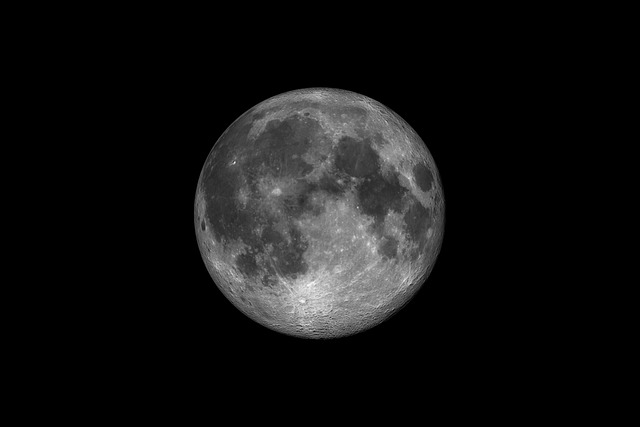
The moon has long held a significant place in various cultures, including biblical symbolism. In dreams, the moon can represent various themes such as emotions, cycles, and divine guidance. This article explores what the moon symbolizes in biblical dreams, its interpretations, and how it can relate to personal experiences.
Understanding the Moon in the Bible
In the Bible, the moon often symbolizes God’s creation and serves as a reminder of His divine authority. The moon, along with the sun and stars, is mentioned in the creation narrative of Genesis 1:14-19. Here, God establishes the celestial bodies to serve as signs for seasons, days, and years. This establishes the moon as part of God’s intricate design for the universe, reflecting His glory and power.
The moon is also mentioned in several biblical contexts, often symbolizing change and the passage of time. Its phases—waxing and waning—can represent the cycles of life, including the transient nature of human experiences. In dreams, the moon may indicate a transition or an upcoming change, inviting the dreamer to reflect on their current life phase.
The Moon as a Symbol of Emotions
In many biblical interpretations, the moon is associated with emotions and the subconscious mind. Just as the moon affects the tides, it can symbolize the ebb and flow of feelings within an individual. Dreaming of the moon may indicate that the dreamer is experiencing heightened emotions or is in a reflective state.
For instance, a full moon in a dream may represent clarity and enlightenment, suggesting that the dreamer is gaining insight into their feelings or circumstances. Conversely, a new moon may symbolize a time of introspection, urging the dreamer to assess their emotions and consider new beginnings. By paying attention to the moon’s phase in dreams, individuals can gain a deeper understanding of their emotional landscape.
Cycles and Seasons of Life
The moon’s phases are a powerful metaphor for the cycles and seasons of life. In biblical terms, the moon can symbolize the natural progression of time and the inevitability of change. Just as the moon goes through various phases, so do human experiences, from joy to sorrow, growth to decay.
Dreaming of the moon may serve as a reminder that life is filled with seasons, each with its own purpose and lessons. For example, a waxing moon could represent growth and positive change, while a waning moon might symbolize letting go or a period of rest. Recognizing these cycles can help individuals navigate their spiritual and emotional journeys with greater ease.
Divine Guidance and Revelation

In biblical dreams, the moon can also symbolize divine guidance or revelation. The moon reflects the light of the sun, which can be seen as a metaphor for God’s light illuminating the path for believers. Dreaming of the moon may suggest that the dreamer is receiving spiritual insight or direction from God.
This symbolism can manifest in various ways. For instance, a dream featuring a bright, luminous moon may indicate clarity in a decision-making process or the resolution of a problem. Conversely, a dark or obscured moon might suggest confusion or uncertainty, urging the dreamer to seek divine wisdom and guidance through prayer or scripture.
The Moon and Relationships
The moon also plays a role in the symbolism of relationships in biblical dreams. It may represent emotional connections, intimacy, and the nurturing aspect of love. Dreaming of a moonlit night can evoke feelings of romance and companionship, suggesting a period of emotional closeness with a partner or family member.
On the other hand, the moon may also highlight issues within relationships. For example, a dream featuring a crescent moon could symbolize a developing relationship that is still in its early stages. Alternatively, a dream of a full moon might indicate a peak in emotional intensity, whether positive or negative. Understanding these dynamics can help individuals navigate their relationships more effectively.
Reflection and Self-Discovery
Dreams featuring the moon often encourage reflection and self-discovery. The moon’s connection to the subconscious suggests that the dreamer may be exploring deeper aspects of themselves. This exploration can lead to greater self-awareness and personal growth.
In biblical terms, self-discovery is a journey toward understanding God’s purpose for one’s life. Dreaming of the moon may prompt individuals to examine their beliefs, values, and motivations. It can serve as a call to align their actions with their spiritual path, leading to a more fulfilling life in accordance with divine intentions.
Interpreting Moon Dreams
When interpreting dreams that involve the moon, it is essential to consider the context and emotions surrounding the dream. The feelings experienced during the dream can provide valuable insight into its meaning. Additionally, the dreamer’s personal experiences and current life situations should be taken into account, as they can significantly influence the interpretation.
For instance, if a dreamer has recently experienced a significant life change, dreaming of a full moon may symbolize the culmination of that change and the newfound clarity it brings. On the other hand, if the dreamer is feeling lost or uncertain, a dark moon may indicate a need for introspection and seeking divine guidance.
The Role of Cultural Context

Cultural context plays a vital role in interpreting the symbolism of the moon in dreams. Different cultures may have varying beliefs and interpretations regarding the moon’s significance. In biblical culture, the moon is often associated with divine order and the rhythm of life.
Understanding the cultural background can provide additional layers of meaning to dream interpretations. For example, in some cultures, the moon is seen as a feminine symbol, representing fertility and nurturing. In biblical dreams, these associations can enhance the understanding of emotional and relational aspects of the dream.
Conclusion
The symbolism of the moon in biblical dreams is rich and multifaceted. It can represent emotions, cycles of life, divine guidance, relationships, and self-discovery. By paying attention to the context and feelings surrounding moon dreams, individuals can gain valuable insights into their spiritual and emotional journeys. Reflecting on the moon’s phases can help guide one through life’s transitions, reminding us that change is a natural part of the human experience.
In a world filled with uncertainties, the moon serves as a reminder of the divine order and the importance of aligning our lives with God’s purpose. By embracing the symbolism of the moon, we can cultivate a deeper understanding of ourselves and our relationships, ultimately leading to a more fulfilling life.
FAQs
1. How can I remember my dreams about the moon?
To enhance dream recall, keep a dream journal by your bedside. Write down your dreams as soon as you wake up, focusing on details like the moon’s phase and your emotions during the dream. This practice can help strengthen your memory of moon-related dreams.
2. Are there specific prayers for interpreting moon dreams?
While there are no specific prayers for interpreting moon dreams, seeking divine guidance through prayer can be helpful. Ask God for clarity and understanding regarding your dreams, and trust that He will reveal insights in His timing.
3. Can moon dreams have different meanings based on the dreamer’s gender?
Yes, moon dreams can have different meanings based on the dreamer’s gender, particularly in cultural contexts that associate the moon with femininity and nurturing. However, personal experiences and emotions also play a significant role in dream interpretation.
4. How can I use moon symbolism in my daily life?
You can use moon symbolism in your daily life by reflecting on its phases and how they relate to your experiences. For example, during a full moon, consider celebrating achievements, while a new moon can be a time for setting intentions or starting fresh.
5. Is there a connection between lunar cycles and spiritual practices?
Many spiritual practices recognize the significance of lunar cycles. Some people align their rituals, meditation, or goal-setting with the phases of the moon to enhance their spiritual growth and connection to the divine.






